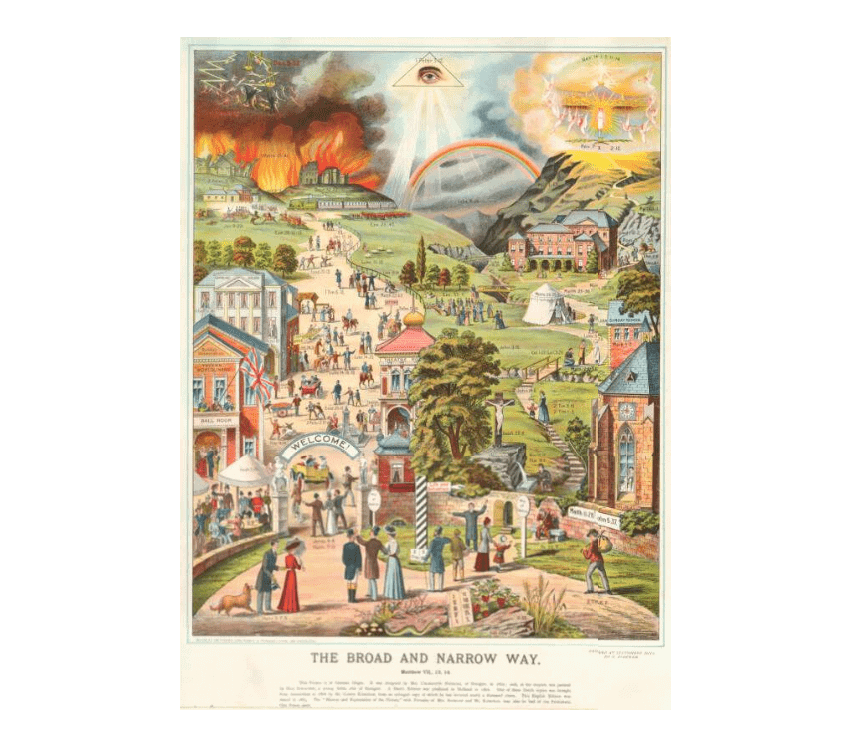 |
| Simon Magus, who exorcised in Jesus's name. |
Some years ago, friend Xerxes objected to George Bush Jr.’s supposed attitude, which he said was “anyone who is not with me is against me.” And this he said was starkly opposed to Jesus, who said instead “anyone who is not against me is with me.”
I corrected him then. Jesus actually said both. See Matthew 12: 30; Mark 9: 40.
Presumably in Xerxes mind, had he known this, he must think Jesus contradicted himself; or else the Gospels are inconsistent. One must be unreliable.
But both are true. There is such a thing as the fallacy of the false dilemma. But here we have a true dilemma, a situation in which there are only two choices. Either you are with Jesus, the Truth, or you are against it. There is no third option. Creation is a constant war between truth and falsehood, good and evil.
Bob Dylan makes the point in song: “It may be the Devil, or it may be the Lord, but you’re gonna have to serve somebody.”
Anyone who is committed to Truth, which is to say, necessarily, the one true God, is on the same team. Anyone who is not so committed is, consciously or not, worshipping and working for the Devil.
This point comes to mind from noticing several talks on YouTube by Rabbi Tovia Singer. His entire programme seems to be to debunk Christianity. I say those who try to debunk or discredit any monotheistic faith are really of the Devil’s party. Their agenda, even if not themselves conscious of it, is to drive others from faith in the Lord; they are doing the Devil’s work.
Does this mean there are no possible errors in the creed of this or that denomination? Of course not; this is categorically impossible. So long as they disagree on any point, and they do, one must be right, and one must be wrong. But in comparison to the fundamental issue, of being of the party of God, any such differences must be trivial. To focus on them is to turn away from God yourself, and to attempt to turn another away. You are of the Devil’s party, even without knowing it.
This applies to nominal Jewish rabbis like Singer; they are really wolves in sheep’s clothing. It applies to those many Protestant ministers whose chief interest seems to be in criticizing Catholicism rather than asserting their faith. They are attacking faith. It applies to any who claim to be Christian, who scapegoat Islam as intrinsically evil. Although so ffar as I can see, the strongest criticism of Islam comes not from the fellow religious, but from secularists. It applies to any Muslims who claim that Christians or Jews are evil—the “Islamist” terrorists. They are not true Muslims; they are secularists. Like the psychiatrist who drove his car into a Christmas market in Germany: these people hate Islam as well, if they hate Christianity.
I note too the conclusion to the story of the rich man and Lazarus, told by Jesus in the Gospel of Luke:
“They [i.e., like the Jews] have Moses and the Prophets; let them listen to them.’
“‘No, father Abraham,’ he said, ‘but if someone from the dead goes to them, [i.e., like Jesus] they will repent.’
“He said to him, ‘If they do not listen to Moses and the Prophets, they will not be convinced even if someone rises from the dead.’”
A good Jew is a good Christian. A good Christian is a good Jew.
It is important to me that the post-Vatican II Catholic church has a good record of not criticizing other faiths. I went through the Catholic schools, and never heard a peep in criticism of any other denomination.
I had a Jewish friend in grad school who refused to believe this. She assured me that, regardless of my actual experience, all Catholics are taught that the Jews murdered Christ.
Her supposedly Jewish teachers were in league with the Devil.
This is a good test, like the test for discerning the spirits. Does the teacher support and nurture faith, or does he spend his greater energy criticizing faith?
There are many false shepherds.




























